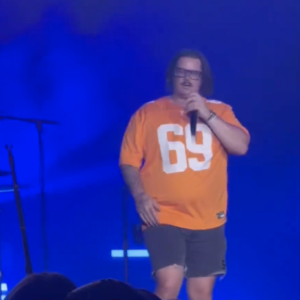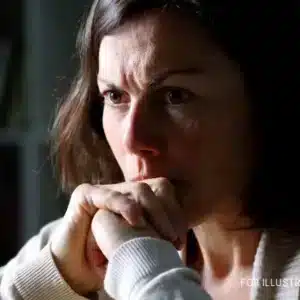Diana was painfully preparing herself to say goodbye to her dying husband in the hospital. While she was struggling to process that he had only a few weeks left to live, a stranger approached and whispered the jolting words: “Set up a hidden camera in his ward… you deserve to know the truth.”
I never thought my world would end in a hospital corridor. The doctor’s words echoed through my skull like a death knell: “Stage four cancer… metastasized… he’s got a few weeks to live.”
The diagnosis shattered the future I’d planned with Eric. Fifteen years of marriage reduced to a handful of days. The golden band on my finger felt suddenly heavy, weighted with memories of better times: our first dance, morning coffees shared in comfortable silence, and the way he’d stroke my hair when I was sad.
My stomach churned as I watched other families passing by. Some were crying, some laughing, and some were frozen in that peculiar limbo between hope and despair. I knew I had to get out before I shattered completely.
I stumbled through the automatic doors, the late September air hitting my face like a gentle slap. My legs carried me to a bench near the entrance, where I collapsed more than sat. The evening sun cast long, distorted shadows across the hospital grounds, mirroring the agony in my heart.
That’s when she appeared.
She wasn’t remarkable at first glance. Just an ordinary nurse in her late 40s, wearing navy scrubs, with tired eyes that held something.
Her silver-streaked hair was pulled back in a bun, and her shoes were the sensible kind worn by someone who spent long hours on their feet. She sat beside me without asking, her presence both intrusive and oddly calming.
“Set up a hidden camera in his ward,” she whispered. “He’s not dying.”
The words hit me like ice water. “Excuse me? My husband is dying. The doctors confirmed it. How dare you—”
“Seeing is believing.” She turned to face me fully. “I work nights here. I see things. Things that don’t add up. Trust me on this… you deserve to know the truth.”
Before I could respond, she stood and walked away, disappearing through the hospital doors like a phantom, leaving me with nothing but questions.
That night, I lay awake in the bed, my mind racing. The stranger’s words played on repeat, competing with memories of Eric’s diagnosis day. How he’d gripped my hand as the doctor delivered the news, and how his face had crumpled in despair.
What did she mean by ‘He’s not dying’? The thought seemed impossible, yet that spark of doubt wouldn’t die. By morning, I’d ordered a small camera online with overnight delivery, my hands shaking as I entered my credit card information.
I slipped into his room while Eric was getting his routine scan the next day.
My hands trembled as I positioned the tiny camera among the roses and lilies in the vase on the windowsill. Each movement felt like a betrayal, but something deeper pushed me forward.
“I’m sorry,” I whispered, though I wasn’t sure if I was apologizing to Eric or myself.
An hour later, Eric was back in bed, looking pale and drawn. His hospital gown made him seem smaller somehow, and more vulnerable. “Where were you?” he asked weakly.
“Just getting some coffee,” I lied. “How was the scan?”
He winced as he shifted in bed, the sheets rustling softly. “Exhausting. The pain’s getting worse. I just need to rest.”
I nodded, squeezing his hand. “Of course. I’ll let you sleep.”
That evening, after making sure Eric was settled for the night, I went home and sat on my bed. The laptop’s blue glow illuminated my face as I accessed the camera feed, my heart pounding so hard I could feel it in my throat.
For hours, nothing happened. Eric slept, nurses came and went, and I began to feel foolish for listening to a stranger.
Then, at 9 p.m., everything changed.
The ward door opened, and a woman entered. She was tall, confident, and wearing a sleek leather coat. Her perfectly styled dark hair caught the light as she approached Eric’s bed, and what happened next made my blood run cold.





